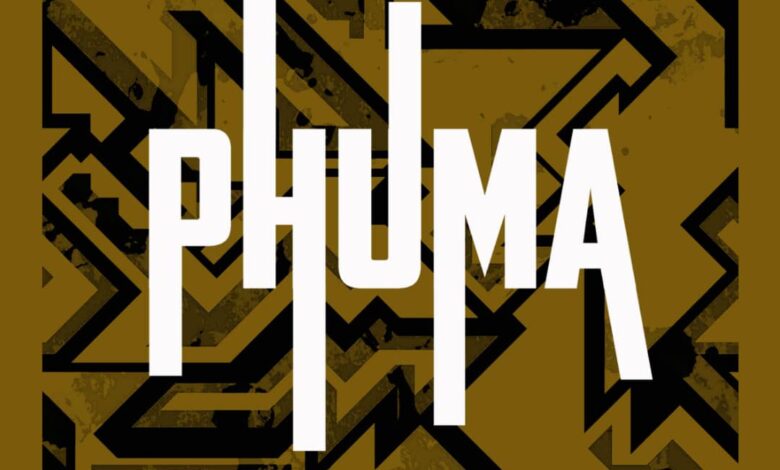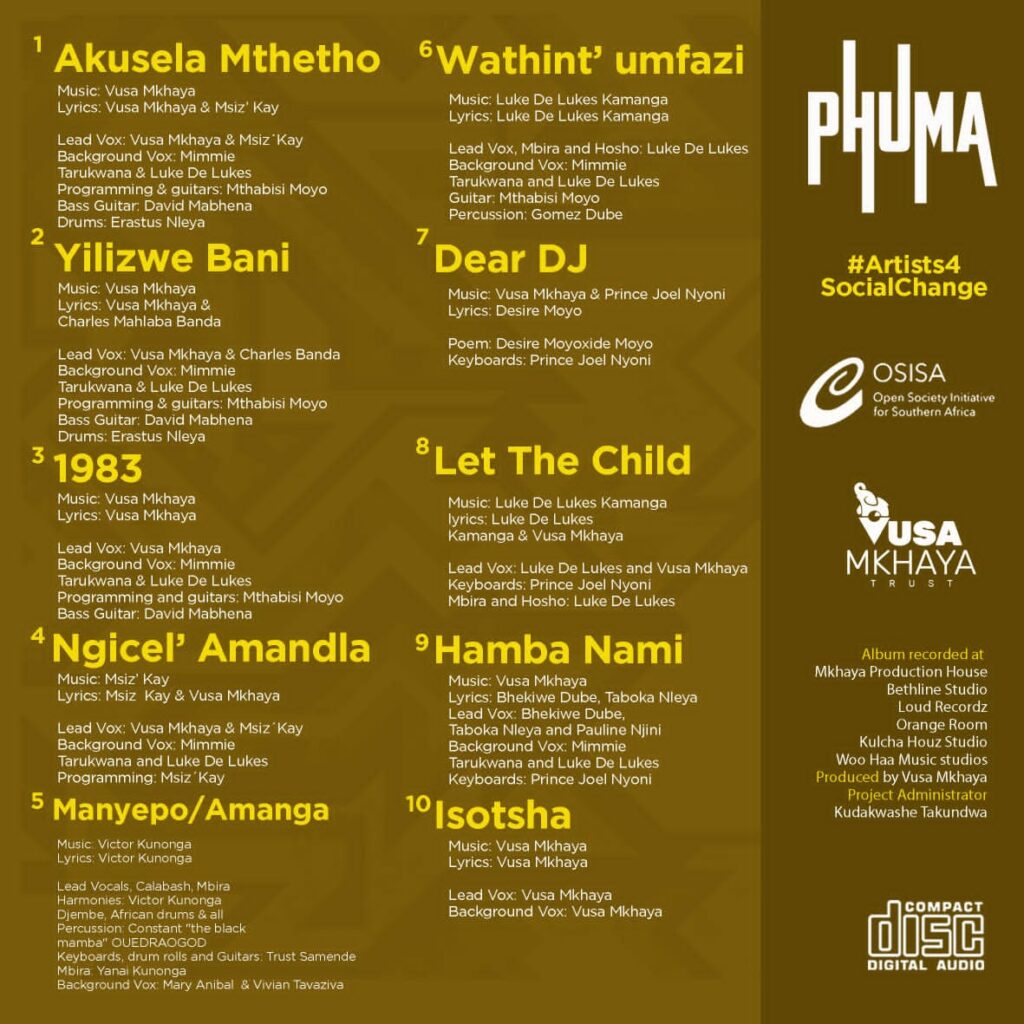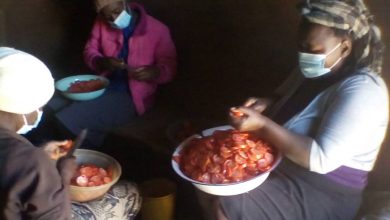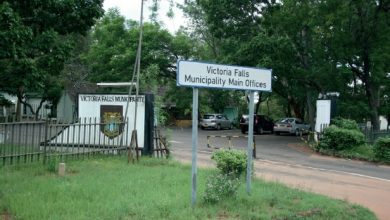Local artists release album on human rights issues

Various artists mostly from Bulawayo and Harare have recorded an album titled – PHUMA- that highlights daily challenges people face in communities such as human rights violations and the aftermath of Gukurahundi atrocities.
Phuma is an IsiNdebele word meaning get out or come out and is used in many situations depending on the context.
For instance, phuma can mean come out, let us go partying or get out of influence and give others a chance.
The production of the 10 track album is part of the #Artist4SocialChange Project, where the artists used their voices and artistic freedom of expression.
In an interview with CITE, Project Administrator, Kudakwashe Takundwa said the production of Phuma started in August 2021 and was recorded in Bulawayo, Harare, Johannesburg in South Africa and Vienna in Austria.
“The #Artist4SocialChange Project was funded by the Open Society Initiative for Southern Africa (OSISA). Each song will be accompanied by a music video and will speak on different problems that affect society on a daily basis,” he said.
“Each song carries a message about people who are sleeping on their job or abusing power, from church leaders to politicians and the album gives them a warning that enough is enough and it’s high time they stepped out from their habits of abusing power and start to build better communities. Ngakho sithi abaphume (they must get out) PHUMA.”
Some of the artists involved in the project include award winning artists such as Austria based- Vusa Mkhaya, Msiz’ Kay, Victor Kunonga, Luke De Lukes Kamanga, Prince Joel Nyoni who are locally based, among others who feature in the lyric writing and composition.
“The project seeks to speak truth to power using music and struggles that include political, societal, and familial and gender issues are covered in the themes that we sing about. This is in a bid to give hope to the masses by representing their silenced voices while challenging those in leadership positions to help solve the unending abuse of human rights, children and women’s rights, corruption, hunger and poverty,” said Takundwa.
“We seek to challenge the status quo that has silenced the masses by being the mouthpiece of society.”

Some of the tracks in the album are ‘Wathint’umfazi,’ which is about domestic gender-based violence that is rampant in Zimbabwe.
It is sung by Luke De Lukes Kamanga, who says domestic violence is a form of abuse that the government needs to address and questions what authorities are doing to protect the women from the scourge of gender-based violence.
There is a track titled – 1983 – done by Vusa Mkhaya on the Gukurahundi genocide that took place in Matabeleland and Midlands provinces.
Gukurahundi started in the early 1980s and only ended in 1987, when more than 20 000 civilians had been killed by the Fifth Brigade.
Manyepo, is another track performed by Harare based -Victor Kunonga, who details how citizens are tired and will not listen to empty promises told by politicians anymore.
Kunonga sings that citizens want the truth and cannot be bought to continue supporting the lies told repeatedly by politicians.
Another track by Mkhaya on the album is ‘Yilizwe Bani?’ that interrogates the everyday plight of an ordinary Zimbabwean citizen.
The song notes how Zimbabwe is affected by poverty, water, electricity, money shortages, lack of food and no jobs.







now we need to know how to acquire this album!